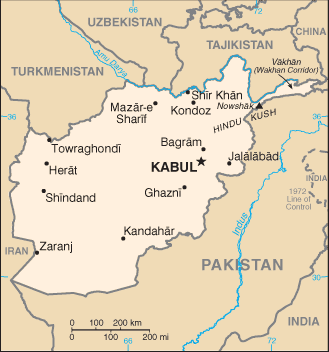|
Volume 20, Issue 4 Publius Over the past month, the Taliban have launched a lightning advance across Afghanistan, culminating in the capture of Kabul on the 15th of August. It is yet to be seen whether the new regime will be able to keep hold of their prize, and put a stop to the civil wars which have consumed Afghanistan for two generations. At this early stage, however, they seem poised to do so. They seized control of the restive Northern provinces before an effective resistance could be organised, capturing or driving off several prominent anti-Taliban leaders. It seems likely the world will have to come to terms with a new Islamic Emirate in Afghanistan. Over the coming months, a great deal of ink will be spilled regarding the fallout from the Taliban’s lightning takeover of Afghanistan. The broad trends, however, seem relatively apparent, and global actors are scrambling to reposition themselves. Pakistan: Perhaps the most keenly felt effects of the new Afghan government will be felt in neighbouring Pakistan. Despite being a military ally of the United States, Pakistan has been consistently implicated in funding and supporting the Afghan Taliban, and it is likely the two countries will enjoy friendly relations. The ascension of the Afghan Taliban will greatly assist Pakistan in their ongoing campaign against the Pakistani Taliban. Don’t let their names confuse you: the Pakistani Taliban and Afghan Taliban are no friends of one another. On the contrary, they have been involved in frequent armed clashes. Pakistan has been waging a campaign to suppress the Pakistani Taliban for years, and suddenly look a lot more likely to succeed, with the fall of the Afghan Government which had indulged the Pakistani Taliban operating on Afghan territory. Furthermore, the Islamic Emirate of Afghanistan has the potential to be another much-needed ally in Pakistan’s bitter conflict with main regional antagonist India. Pakistan has long been accused of supporting Islamic extremist groups operating in Indian-controlled territory, particularly in the disputed Kashmir region. Now, thousands of hardened Taliban fighters find themselves without domestic enemies, and might be induced to travel to nearby Kashmir. China: China reacted quickly to the news of the Taliban takeover, their foreign ministry welcoming ‘friendly relations’ with the new regime. Despite this smiling façade, it is likely that some in Beijing are slightly nervous. The incoming Taliban government is an unknown quantity, and China has reasons of their own for not wanting to embolden militant Islam. Afghanistan shares a narrow border with Xinjiang, where reportedly the CCP is busy suppressing a Muslim minority. Nevertheless, if China can secure assurances of good intention from the Taliban, the new state of affairs comes with a great deal of positive potential. For one thing, it is surely a relief to no longer have a heavy US military presence on the Western border (small US bases in the region notwithstanding). Their geostrategic rival has been humiliated by the stunning collapse of a twenty-year effort, and China has already wasted no time in crowing about the ‘end of an era’. Furthermore, Taliban-controlled Afghanistan is another likely contender to be part of China’s Belt-and-Road initiative. The war-ravaged country is likely to be in need of significant reconstruction funds, particularly if the US and Europe refuse to deal with the new government. China is perfectly poised to step into the breach. China has big plans to gain independence in high-end electronic manufacturing, notably semiconductors. To do this, they will need to move beyond Western-dominated supply chains. Afghanistan’s vast unexploited mineral wealth offers a useful avenue for realising this ambition, presenting the potential for an enormous mutually-profitable economic relationship. Iran: The Iranian position is the most complex of the three states discussed here. Despite being, on their face, sectarian rivals in the Sunni-Shia conflict, Iran has long adopted a pragmatic approach to their foreign affairs. As with China, Iran likely won’t mind the void left by the US military on their Eastern border. On the other hand, there is no guarantee that the Taliban will be any less antagonistic towards Iran, especially once they have consolidated their power. Indeed, the Taliban have attacked Iranian assets in the past. Nevertheless, Iran has established amicable relations with Sunni groups in the past, notably Hamas. Recent reports have also emerged of Shia Hazara fighting with the Taliban, signalling a possible softening of their formerly hard-line position. If the two are able to reconcile their differences, Iran might stand to benefit greatly by having another state outside the US global order on its Eastern border. Sanctions might not bite so hard, for either potential pariah. Publius is a third-year JD student. The views in this article do not necessarily reflect the views of De Minimis or its Editors. De Minimis wishes to offer its sincere sympathies to MLS students currently in Afghanistan, and those who have family and friends in the country.
Comments are closed.
|
Archives
October 2022
|



